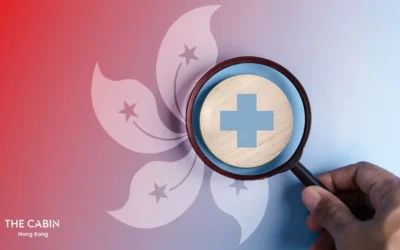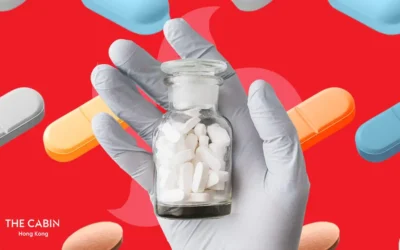Raising a teenager is not easy, especially when you know that drugs, alcohol and other dangers are becoming more accessible to them. Learn some parenting and teen drug addiction prevention techniques that will provide your child with a solid foundation that can greatly reduce the risk of addiction development.

As parents it is only natural to be concerned about what our children are doing, especially when they reach the age that they have more exposure to drugs and alcohol. They are also experiencing peer pressure and common issues such as going through hormonal changes and generally just wanting to fit in or be ‘cool.’
You are responsible for your child; therefore, it is prudent to learn ways in which you can minimise the chances of your child becoming addicted to alcohol or drugs. Family life certainly has an impact on teenagers in terms of the decisions they make. Even though you will not be able to control all the situations that take place outside of your home, such as your child’s friends, or what happens while they are at school or amongst the community, you do determine the way in which your family functions.
Brain Development: Why Teens Are More Susceptible to Addiction
Advances in neuroscience are revealing evermore details about how the brain develops. How this information is relevant to youth being more susceptible to addiction comes in two parts.
There is one part of the brain called the ‘prefrontal cortex,’ which deals with cognition. It is additionally responsible for organising and planning as well as evaluating the consequences of actions.
Then there is another part of the brain, the ‘nucleus accumbens,’ which is the circuit that plays a huge role in the cognitive processing of motivation, pleasure, reinforcement learning, and perhaps most importantly in regard to this discussion: pleasure.
Guess which brain area develops first – the pleasure and reward circuit, with the other region of the brain that handles the cognition of cause and effect becoming fully developed when we are in our mid-twenties.
This is notable because teenagers generally seek out excitement and pleasure. Not having the advantage of a completely developed area of the brain that rationally understands cause and effect in relation to the choices they make is a potent combination that can lead teenagers to addiction and its sometimes devastating consequences.
Learn About Youth and Addiction
Clinical psychologist and head of St. John’s Counselling Centre in Hong Kong, Dr. Mark Gandolfi, states that alcohol and drugs are readily ‘available, accessible and affordable’ in Hong Kong. This means that your child is relying on you to make educated and collaborative decisions with him or her when it comes to protection from the dangers of alcohol or drugs.
The U.S. National Institute on Drug Abuse Director Dr. Nora Volkow has mentioned that in terms of addiction prevention it is very helpful if people have correct information regarding drugs, particularly marijuana, which is often referred to as a ‘safe’ drug. Related subjects you may want to pay attention to include how using one drug can lead to other drug use, as well as the addictive properties of drugs and their negative effects on the brain, on other organs, and on a person’s life overall.
Seeking professional advice is another ideal step. There are numerous books that provide valuable addiction related information that is supported by medical studies and do not require medical expertise to read or understand. Dirk Hanson is a good author on the subject of addiction. You can start with his book: The Chemical Compound and Addiction Inbox.
What You Can Do to Prevent Your Child’s Alcohol and Drug Abuse
While developing an overall understanding about drugs is important, this information alone will not stop your teen from abusing alcohol or other drugs. Perhaps the most powerful way to prevent your child from developing a drug habit is by interacting with him or her, especially if you know the signs that your child may be using, and enacting changes in behaviour within the home.
For example, if your child comes home smelling of marijuana, then you have to communicate your household boundaries on drug use in a straightforward and strict way. Your child has to understand what kind of behaviour will not be tolerated by you and why. Setting proper boundaries and helping your child select better options that will help them grow and develop as a person is vital in making them realise that they do not need alcohol or drugs to feel good.
It is no secret that teenagers generally do not like being told what they should or should not do. Regardless, parents are responsible for guiding them down the right path in order to help them find their passions, joys and other things that will steer them away from the temporary pleasure that comes from using alcohol or drugs.
You should also consider your relationship with your child. Since the family plays a crucial role in drug prevention, you should reinforce protective aspects of your parenthood and limit various risk factors that may play a role in your child’s susceptibility to drug abuse. These protective measures include having a good relationship with your child. This includes having honest conversations regularly and showing interest in his or her life – about friends and the activities they like to do together. Also having insight into where your teenager hangs out can help you determine potential exposure to alcohol and drugs.
It is important that your child feels loved and has a healthy environment to come home to. Perhaps one of the hardest parts of being a parent is to refrain from coming across as controlling or overprotective, which can cause your teen to become secretive or selective with the information that he or she shares with you. Firm communication and expressing your love and acceptance should provide a solid foundation that can help them feel confident and improve self-control.
Options If You Suspect That Your Teenager is Using Drugs
If you are suspicious that your child has been taking drugs, then you should consider having him or her take a drug test. Be mindful about this decision because having your kid take a drug test against his or her will can impact your relationship.
If you determine that a drug test is the right move to make, it is best to seek the guidance of professionals, so that they can help you understand the test results and give you more information regarding the matter at-hand and what can be done.
Joanne Schmitt, head counsellor at The Cabin Hong, states that, “Urine testing is too easy to cheat, and many test centres in Hong Kong don’t monitor enough to prevent cheating.” While you may choose the urine test option, the most accurate and efficient method of drug testing then is the follicle test. It gives details of drug use within the last 100 or more days, though it is not the cheapest option. It also requires the sample to be sent for analysis to an accredited lab in the UK or the US.
Youth Support in Hong Kong
Being a parent is no easy task, especially when it comes to what we have been addressing here. Know that you are not alone. Whether you find yourself in a situation that your teen is using drugs, you suspect that he or she may be using, or if you would like general information and support, there are many helpful resources available that you can access.
KELY, for example, is a non-government funded support group that focuses on youth and addiction. Hong Kong youths from the ages of 14-24 can attend the bilingual organisation to receive confidential, compassionate, non-judgemental and comprehensive support. KELY’s services and programmes concentrate on alcohol and drug prevention and intervention. They are designed to deal with the root causes of abuse, such as peer pressure, boredom, self-esteem issues, lack of self-awareness and other issues.
If you find that your teen is already displaying signs of addiction, then now is time to speak up and seek professional help. Contact The Cabin Hong Kong today to find out more information on youth-related drug and alcohol abuse and what treatment options are available.


